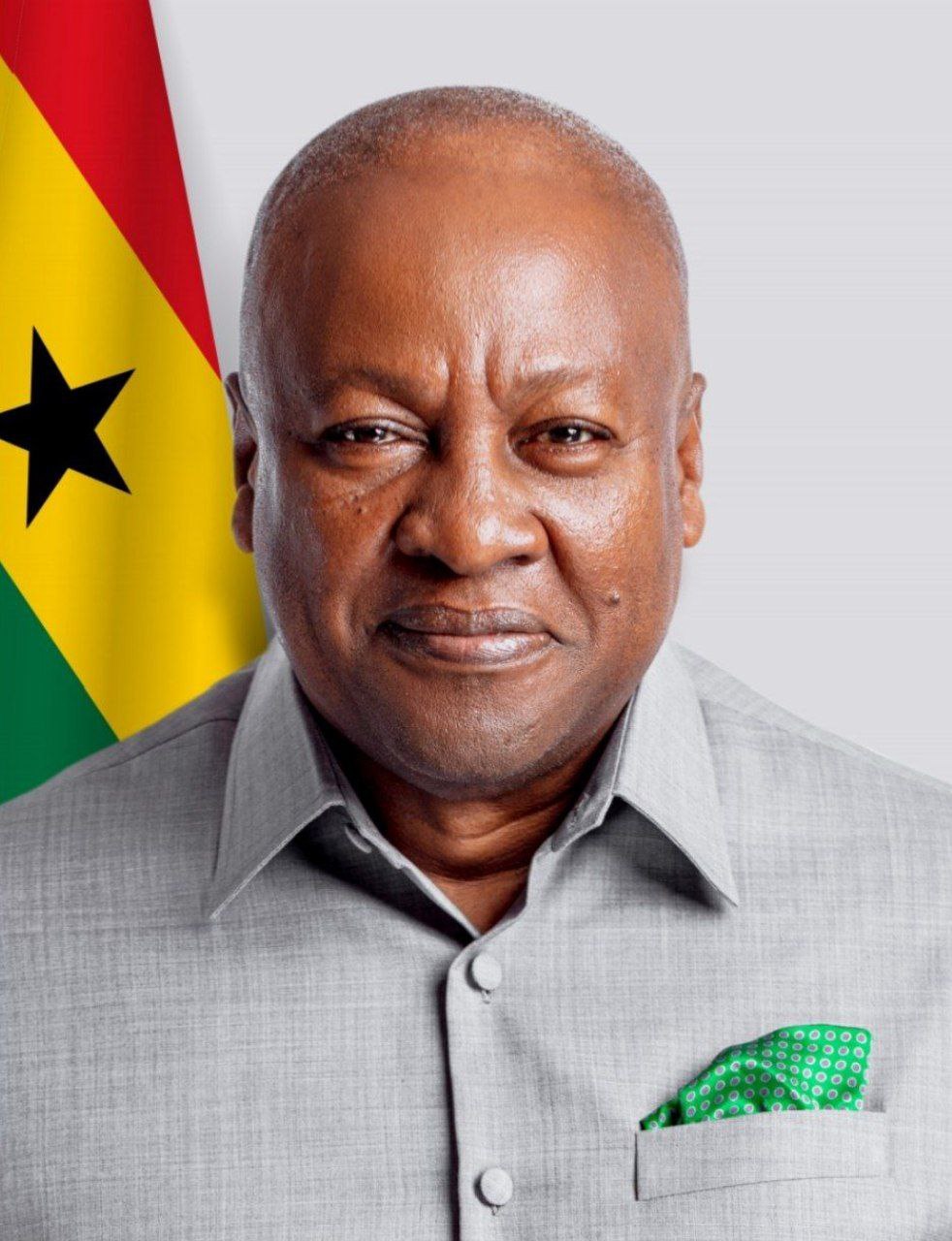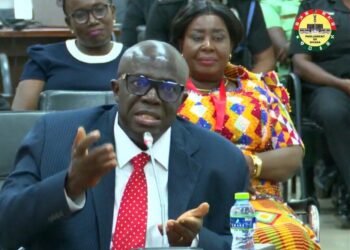A day after devastating floods wreaked havoc across several parts of Accra, Deputy Presidential Spokesperson, Shamima Muslim, has outlined the causes of the incident and provided insight into the government’s immediate and long-term plans to address the perennial menace.
Speaking candidly, she pointed to a combination of infrastructural weaknesses and harmful civic behaviour as the root of the crisis. The flooding, which struck on Sunday, May 18, affected major areas including the Ofankor Highway, Shiashie, Spintex, and the Palace Mall zone.
“All of the floods around these areas were as a result of the depression in the road as well as the roadside drains that had not been functioning well because of, again, siltation”
Shamima Muslim, Deputy Presidential Spokesperson
Muslim revealed in a post-flood assessment, that these were among the hardest-hit locations because of primarily sunken road levels and long neglected clogged drains.
She criticized what she described as “the crafty behavior of some citizens pouring solid waste into drains,” particularly during the rainy season, in the false belief that floodwaters would conveniently carry the waste away. “But where to? You know, that’s the question. Where to?”
Muslim emphasized that while regulation and policy enforcement remain vital, these alone will not solve the problem without a behavioural shift across communities. she said, stressing the importance of proactive civic responsibility even before rains begin.

“There’s a very complex conundrum with this matter. Yes, we must use the instrument of policy, regulation and enforcement, but also attitudinal and behavioral consistent change campaigns”
Shamima Muslim, Deputy Presidential Spokesperson
Encroachment and Waste Blocking
Beyond central Accra, areas like Lakeside and Ashiyie were also submerged. Muslim explained that some residents had illegally encroached on the Mamahuma Drain, with others actively filling in the Adenta dam near the Fulani enclave.
“So again, we have a major problem with clogged drains, which perennially accounts for parts of the flood and one of the reasons for the flooding that we have”
Shamima Muslim, Deputy Presidential Spokesperson
According to her, even recently constructed drains in these localities were overwhelmed, not due to structural faults but because of irresponsible waste disposal. These drains, intended to improve flood resilience, were “heavily choked with solid waste” at the time of the flooding.
President John Dramani Mahama’s administration, Muslim revealed, has taken an active approach in dealing with the crisis. A presidential task force has conducted an aerial scan of Accra to identify these vulnerable areas and is working to design effective solutions.
“They are collaborating with various engineers for solutions,” she said. She added that desilting will soon commence in major flood-prone zones, including the Odo River, which remains a key focus of government efforts due to its historical role in Accra’s flood drainage system.

GARID and Relocation Plans
A critical component of the ongoing effort is the Greater Accra Resilience and Integrated Development (GARID) Project, backed by the World Bank. The initiative aims to enhance flood risk mitigation and solid waste management and is scheduled for completion next year.
Muslim questioned whether the full scope of previous desilting objectives, particularly regarding the Odo drainage, has been achieved. She acknowledged that substantial funds were allocated to sanitation under the previous administration but argued that results on the ground remain insufficient.
“Obviously, there remains quite a lot of work to be done,” she asserted. In a broader reflection on Accra’s future, Muslim referenced a recent speech by President Mahama at Dodowa Park during a thank-you tour of the Greater Accra Region.
In his remarks, the president revisited the proposal of relocating Ghana’s capital as a long-term strategy to reduce congestion and its associated urban pressures. “He gave strong indications yet again about the prospects of moving the capital.”
Accra’s urban sprawl, compounded by poor land use planning and overstretched infrastructure, presents ongoing challenges. Muslim cited similar rapid urbanization trends in regions like Ashanti, Western, and the Northern Regional capital, Tamale – considered the fastest-growing metropolis in the sub-region.
As flooding continues to threaten lives and property in Ghana’s cities, President Mahama’s administration appears poised to tackle the crisis with a blend of infrastructure projects, policy enforcement, and a push for cultural transformation around environmental responsibility.
READ MORE: Ghana Inaugurates 13-Member Gold Board



















